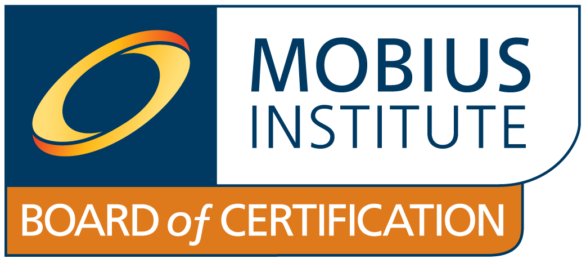Accreditation to ISO/IEC 17024
Accreditation is the difference between "I passed a test" and genuine, internationally recognized and respected certification.
Accreditation makes certification programs legitimate
How important do you think it is to be certified? If you believe that being certified simply means that a person passed a test, then accreditation won’t be important. Any organization can create an exam (a multiple-choice test) and issue a certificate (without there being any evidence whether you actually did pass). But if you believe there should be more to being certified than just passing the test, then accreditation is important.
Accredited certification programs include certain elements that together ensure that the certification process is independent, fair, secure, and meets the needs of the industry. Accredited certification programs are independently audited to ensure they meet the highest standards. You can find further information here regarding our certification.
Let’s take a quick look.
Meets the needs of industry
There is no point in offering a certification process if the outcome does not benefit the industry.
International standards
In some cases, international standards organizations establish rules associated with the certification program. For example, there is an International Standards Organization ISO subcommittee that administers the certification programs related to condition monitoring. That series of standards is known as ISO 18436.
Those standards define job roles, training requirements, experience requirements, and examination requirements. It is possible for an organization to create a course that “follows” the training requirements, and develop an examination that “follows” examination requirements. But how do you know if they actually do?
Sadly, there are training organizations around the world that say they “follow” the standards but upon closer examination, they do not. In one case, even though the standard requires four days of training, only three days of training is provided. Accreditation ensures that these requirements are met.
Certification committees
When an international standard does not exist, which is the case for the field of maintenance and reliability improvement, a committee must be formed to establish the guidelines for the certification program. There will be a Scheme Committee that makes the “rules” and a Technical Committee that defines/reviews the exam. (There is a lot more that is defined; contact us if you like to know more. Our rules and guidelines, and more, are in the public domain.)
The committees must be made up of independent people that represent the industries and countries that will be served by the certification program.
In the case of the Asset Reliability Practitioner® ARP certification program, the Mobius Institute Board of Certification™ has established a Scheme Committee and Technical Committee.
Fair
One of the keys to a certification program is that every candidate has an equal opportunity to pass the exam. Therefore, there must be a rigid process in place to ensure that no one can be adversely affected by the examination process.
There is a great deal that could be said about this process, but the key is that we utilize advanced statistical analysis and psychometric analysis to ensure that the examination and grading process does not provide advantages or disadvantages to any given person.
In brief, imagine that we have a database of exam questions and each exam is therefore made up of different questions. Not every question is equally difficult. How would you feel if you received an exam that happened to be made up of more difficult questions than another person taking the exam at the same time? The detailed processes we go through ensures that no one is adversely affected.
Independence
Even though the Mobius Institute Board of Certification is obviously connected to the Mobius Institute™, they are independent of each other. The owners of Mobius Institute do not make the rules related to certification. All of the rules, guidelines, procedures, and everything else are defined by the Scheme Committee and Technical Committee, even though those decisions may adversely affect the Mobius Institute.
Security
Certification is extremely important. People have been selected for new roles as a result of certification, and they have been promoted as a result of becoming certified. Sadly, some people have lost their jobs because they were unable to be certified, and contractors were unable to win contracts for the same reason.
As a result, there would be a tremendous benefit if a person knew what was on the exam.
We go to great lengths to ensure that the exam database is secure. For example, when people take online exams, we not only use a secure browser so that the computer screen can’t be recorded, but we also video record the person while they are taking the exam. We leave no stone unturned.
While this can be a little inconvenient for people taking the exam, the security of the database outweighs that inconvenience. We can’t afford to do it the easy way.
Auditing to ensure everything is squeaky clean
Everything discussed above must then be audited by an independent body to ensure that it meets the requirements of the world’s best practice. There is a standard that provides detailed guidance. It is ISO/IEC 17024. Each country has an auditing body. In the United States, it is ANSI. In the United Kingdom, it is UKAS. In Australia, it is JASANZ or the Joint Accreditation System of Australia and New Zealand.
JAS-ANZ determines the auditing frequency, it is usually repeated every year. The audit process checks everything: it checks that what we do meets the standard and it checks that we do what we say we do. It is a complete check of quality control and our compliance. The external auditors also randomly select a number of certification candidates and check their records to ensure that the training, experience, and examination process complied with the requirements.
Therefore, when an accredited certification program says it follows certain standards, then it does follow those standards. This is also true for the training that is recognized by the certification body.
